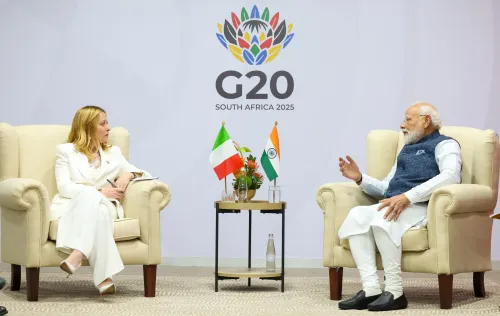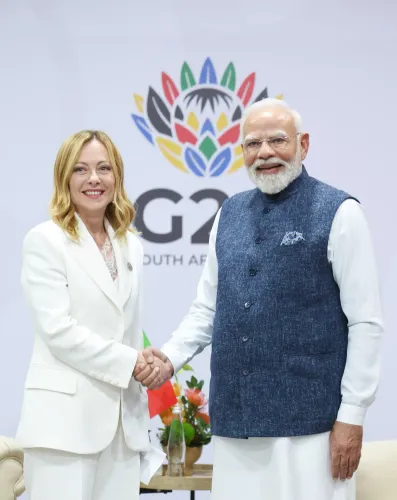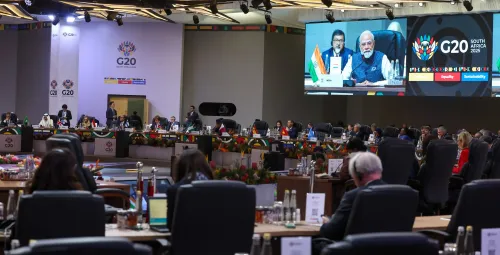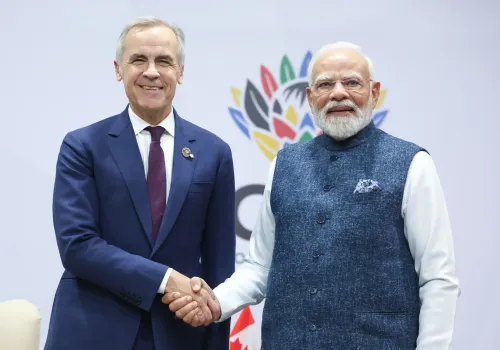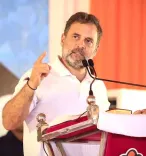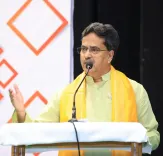Iran and US Prepare for Indirect High-Level Discussions in Muscat
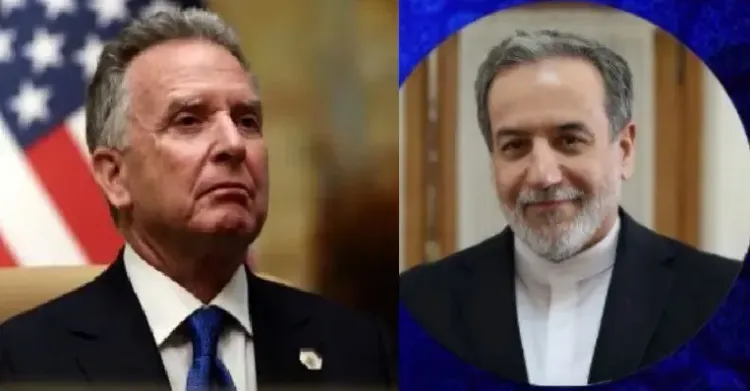
Synopsis
Key Takeaways
- Iran and US engage in indirect nuclear talks.
- Discussions mediated by Omani Foreign Minister.
- Iran insists on equality without threats.
- US Special Envoy Steve Witkoff to participate.
- Efforts to revive the nuclear deal face challenges.
Muscat, April 12 (NationPress) Iran and the United States are set to engage in 'indirect high-level discussions' in Oman this Saturday, with Tehran asserting that the focus will be exclusively on nuclear matters.
The negotiations will take place under the facilitation of Omani Foreign Minister Badr al-Busaidi, according to reports from Iranian media.
Iran has consistently stated that it will not tolerate threats during these discussions and will only engage in conversations regarding the nuclear issue based on win-win negotiations, as reported by Iran's Tasnim News Agency.
Leading the Iranian delegation in Muscat will be Iranian Foreign Minister Seyed Abbas Araghchi, who has asserted that discussions with the United States concerning Iran's nuclear program could yield an agreement, provided that Washington exhibits the 'necessary and sufficient' political will.
US Special Envoy to the Middle East, Steve Witkoff, will represent the United States.
“If the other party approaches the negotiating table with an attitude of equality, there will be opportunities for a foundational understanding that could pave the way for negotiations,” IRNA News Agency quoted Araghchi as saying.
Araghchi has previously stressed that Iran's nuclear program is entirely 'peaceful and legitimate' and that Iran is prepared to clarify any uncertainties regarding its nuclear activities.
In late March, US President Donald Trump warned in an NBC News interview of the possibility of 'unprecedented military strikes' on Iran if it declined to negotiate on its nuclear agenda.
Iran previously entered into a nuclear agreement, officially known as the Joint Comprehensive Plan of Action, with six major nations—Britain, China, France, Germany, Russia, and the United States—in July 2015, agreeing to curtail its nuclear program in exchange for sanctions relief.
However, the United States exited the agreement in May 2018 and reinstated sanctions, leading Iran to reduce some of its nuclear commitments. Attempts to restore the nuclear deal have yet to yield significant advancements.

